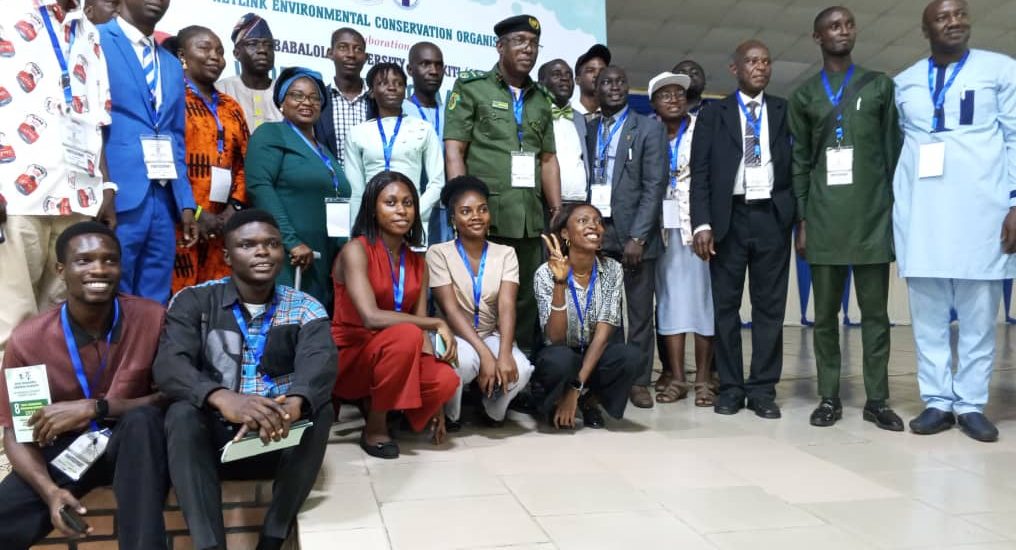- October 28, 2025
- Posted by: itmanager
- Category: International, Latest News, Tertiary Education, University

Calls have been made for individuals across all walks of life to adopt more conscious and eco-friendly approaches in their daily interaction with the environment.
These calls resonated strongly on Tuesday, October 28, 2025, at Owolabi Hall, venue of the 8th World Environmental Conservation Conference, themed “Harnessing Digital Transformation, Green Finance, and Climate Resilience for Sustainability.”
In her address, the Vice-Chancellor of Afe Babalola University, Ado-Ekiti (ABUAD), Prof. E. Smaranda Olarinde, FCArb, FCAI, represented by Prof. Azeez Ademola, described the conference as timely and expedient, noting that it speaks directly to the urgent global discourse on how technology, finance, and resilience must work together to protect the planet and sustain human progress.
Prof. Olarinde further emphasized the pivotal role of universities in driving change, stating that “in an era defined by environmental disruptions and technological advancement, this conference provides a platform for bold ideas, evidence-based dialogue, and multi-sectoral collaboration.”
Delivering the keynote address, the Conservator-General of the National Park Service, Dr. Goni Ibrahim Musa, presented far-reaching recommendations for Nigeria to fully harness digital transformation and green finance for sustainable development. He urged the nation to:
“Integrate environmental education at all levels to build eco-conscious digital citizens; Strengthen partnerships between the public sector, private investors, academia, and local communities; and Enhance law enforcement capacity by equipping park rangers with modern surveillance tools and adequate legal backing.”
Earlier in his welcome remarks, the Chairman of the Local Organising Committee, Dr. Agboola Mayowa, commended the Netlink Environmental Conservation Organisation (NECOR) and the Environmental Conservation Club (ECC) for their continued commitment to environmental stewardship and their role in making the conference a success.
The hybrid event featured both physical and virtual participation, drawing presentations and panel sessions from youth climate advocates, non-governmental organisations (NGOs), and academic researchers, all united in their resolve to promote a greener, more sustainable world.

